How to Choose Tea Online? Small-to-Medium Stores Are the Best Bet
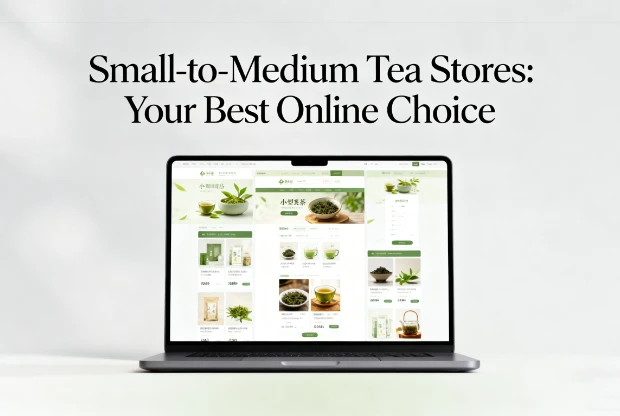
When shopping for standardized products online, people often lean toward items from large companies or budget-friendly options. But when it comes to non-standard goods like tea—where taste and aroma are heavily shaped by origin, processing methods, and vintage—many feel stuck scrolling through endless stores. Should you go for a big store with high sales? You might worry about mediocre value or a lack of uniqueness. What about a new store with low prices? The risk of getting low-quality tea or inconsistent quality control is real. Drawing on my years in tea e-commerce, let me lead with this key point: for non-standard products like tea, prioritize small-to-medium-sized stores. It’s far more reliable than blindly chasing big brands or cheap new shops.
Step 1: Pick the Right Platform to Narrow Down Trustworthy Stores
Choosing the right platform is your first line of defense against shopping pitfalls. It helps you quickly zero in on "promising stores" and cut down on trial-and-error costs. Today’s tea-shopping platforms fall into three categories, each serving different needs:
- Mainstream general platforms: Amazon stands out for its wide product range and fast shipping (FBA delivery, for example, slashes wait times). But it has a downside: it’s dominated by big stores, and many "big general stores"—the kind that sell everything from snacks to tea sets—only offer tea as an afterthought, lacking expertise. To find good options here, search with precise keywords like "organic tea" or "single-origin tea." Steer clear of stores with "tens of thousands of sales" that also peddle tea sets and snacks. Etsy, by contrast, is great for niche, specialty teas (think handcrafted blends or small-region varieties). It’s full of small-to-medium stores, but filter for those that "focus only on tea"—not craft shops that sell tea on the side.
- Vertical tea platforms: These are less well-known than general platforms, but far more specialized. They’re designed to handle tea’s "non-standard" nature, and most sellers here are tea-focused businesses. They clearly list details like origin (e.g., Wuyi Mountain in Fujian, Pu’er in Yunnan), processing methods (sun withering, charcoal roasting), and vintage—no more guessing "what exactly is this tea?"
- Independent websites: Perfect if you want to "stick to quality and repurchase long-term," especially sites that specialize in a single tea niche (like only Fuding white tea or Anxi Tieguanyin). Their owners usually know tea inside out and can give personalized advice: "Beginners should start with Shoumei" or "Bai Mudan is great for gifting." But vet these sites carefully: check for real photos of tea gardens and processing, detailed brewing guides, and genuine customer reviews. Avoid "empty-shell sites" with no credentials or sparse details.
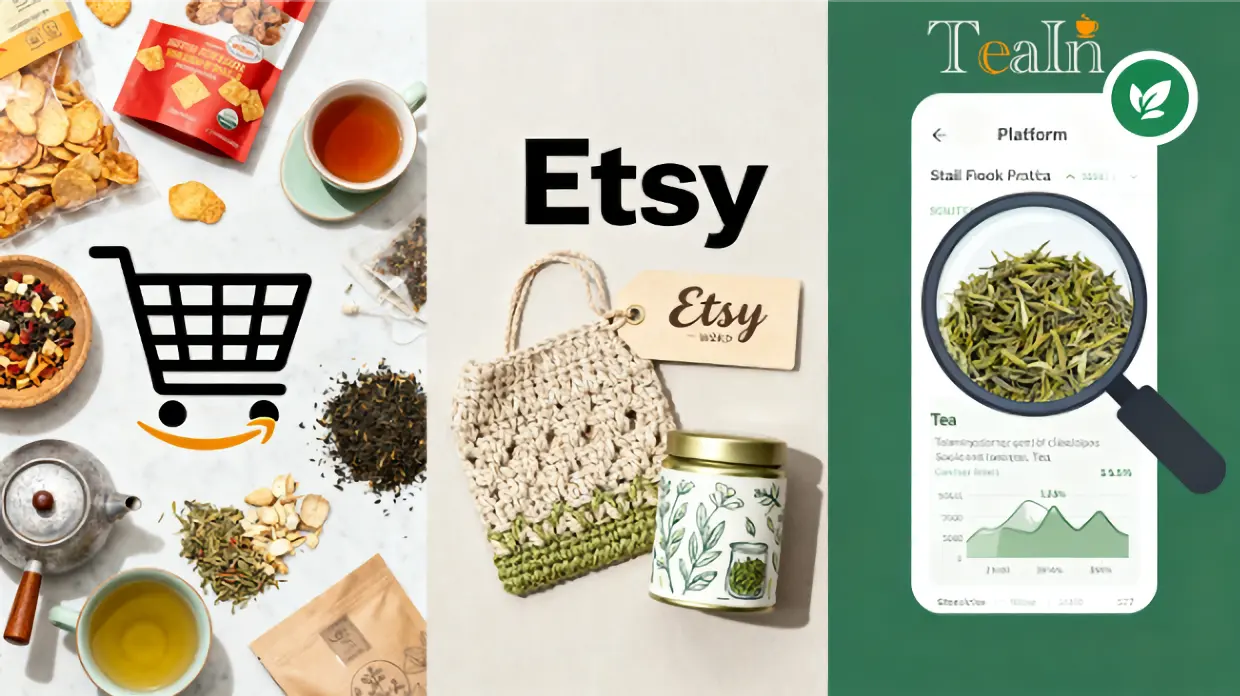
Step 2: Why Small-to-Medium Stores Are a Better Choice
This isn’t a guess—it’s a lesson from hundreds of order interactions and store audits. Small-to-medium stores avoid the flaws of big chains and new shops, and they fit tea’s non-standard nature perfectly.
First, big stores: They guarantee a "minimum standard" (you won’t get tea that’s undrinkable), but they rarely wow. During peak seasons, I’ve seen big stores rush orders with bulk packaging—only for customers to complain about "too many crumbs" or "mislabeled vintage years." After-sales help takes 3-5 days, too, since customer service has to navigate clunky internal processes. Worse, their "standardized quality control" doesn’t mean "high quality." To keep supplies steady, they only stock "middle-of-the-road tea that never runs out"—skipping rare, high-quality varieties. So the taste and aroma are generic. Plus, big stores pass on high costs (advertising, warehousing, staff) to you: the same tea that costs $20 at a small store might be $25-$30 at a big one.
Then, new small stores: They have potential, but the risks are high. Many new owners know how to sell, but not how to judge tea. I’ve seen shops pass off "autumn Shoumei" (a white tea variety) as "spring Shoumei"—and spring Shoumei costs twice as much. Others have unstable supply chains, buying from random farmers, so the same listing tastes different every time. New stores also lack basics: no proper storage, no consistent quality checks. Tea gets damp, or batches vary wildly—your trial-and-error cost skyrockets.
Small-to-medium stores, though, hit the sweet spot between quality and value. Their owners usually know tea: some have their own gardens; others work with the same farmers year after year, checking every batch personally. I once partnered with a small store where the owner tasted every shipment—sending back any tea that didn’t meet their standards. Big stores can’t afford that level of care. These shops also skip the big costs (ads, extra staff), so prices are fair. And their service is personal: ask, "How long can pre-Ming Baihao Yinzhen be stored?" or "How do I brew aged tea?" and they’ll give specific answers—even remind you how to store it. It’s a far better experience than a big store’s scripted replies.
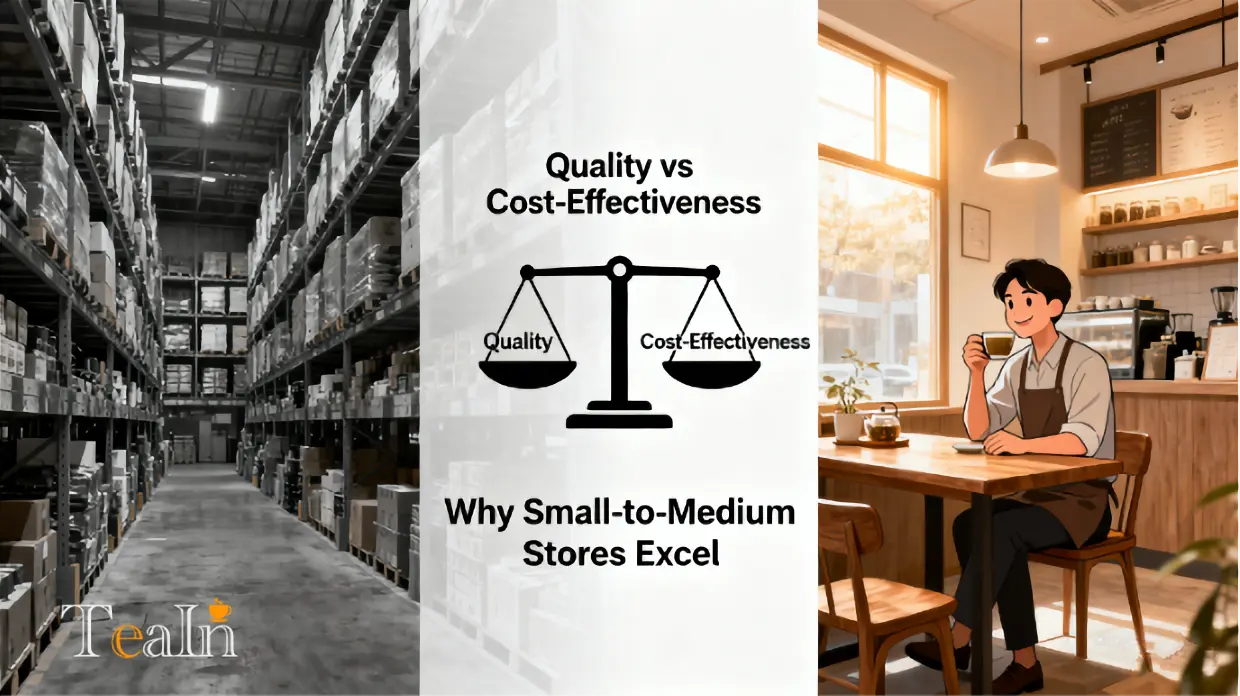
Step 3: How to Find Reliable Small-to-Medium Tea Stores
Choosing small-to-medium stores isn’t random. Use these 3 tips to spot the good ones:
- Scrutinize the product page: Professional stores don’t just post pretty photos. They’ll list "specific origin" (e.g., "Taihu Mountain, Fuding"—not just "Chinese white tea"), processing methods (sun withering vs. indoor withering), harvest time, and vintage. They’ll also show real photos: dry tea, brewed tea, even the leaves after steeping. If the page only says "high-quality tea, great taste"—vague, no details—it’s unprofessional.
- Read reviews carefully: Don’t fall for "all 5-star reviews." Look for specific comments: "Taste is consistent," "Matches the description," "Customer service knows tea." If reviews are all generic lines like "Great product!" or "Fast shipping!"—or if dozens of identical reviews pop up in a week—they’re probably fake.
- Chat with customer service: Ask two questions to test their knowledge: "Is this tea’s aroma floral or jujube-like?" and "Which one do you recommend for beginners, and why?" A tea-savvy rep will answer specifically: "This 2022 Shoumei has a jujube aroma—it developed over 2 years of aging." If they say, "All are good, just buy the expensive one," walk away. Also, pick stores where "over 90% of products are tea" or "they only sell 1-2 types of tea." Avoid "jack-of-all-trades" shops that sell tea, tea sets, and snacks—they can’t focus on quality.
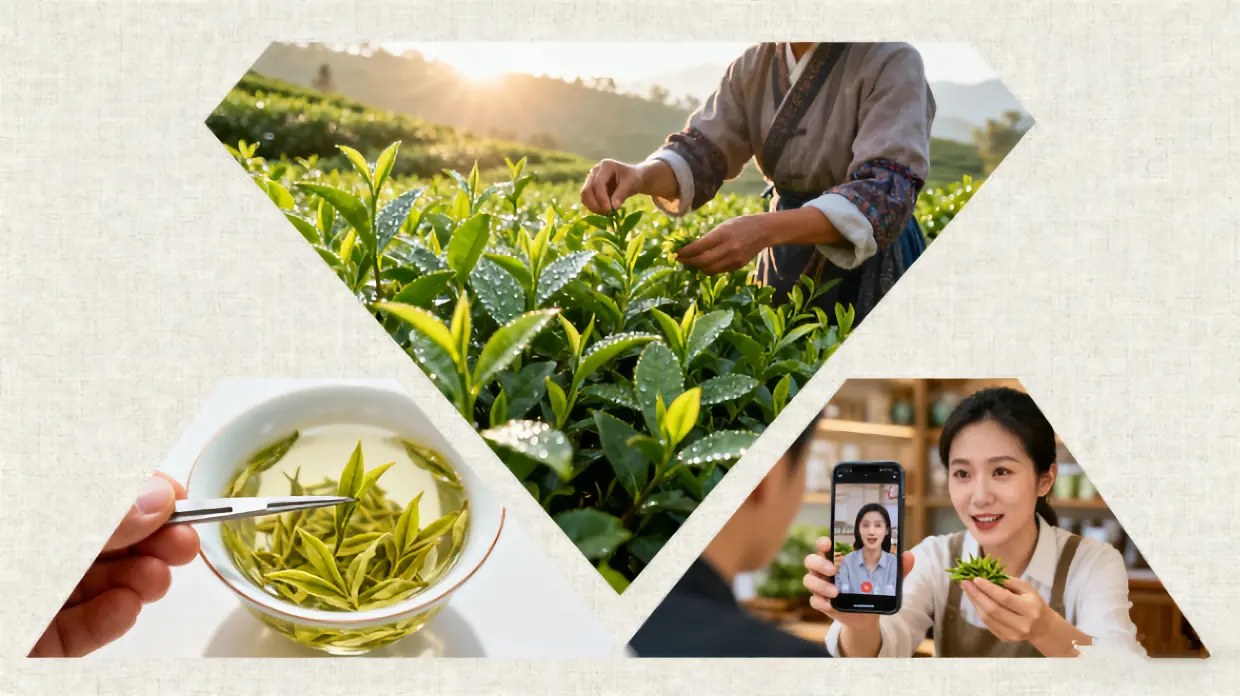
About whiteteain: An Independent Tea Site Built with a Programmer’s Precision

After seeing so many online tea shopping scams, I built whiteteain—an independent site—myself. I wanted to bring the "focus of small-to-medium stores" to tea lovers, helping them find truly great tea.
Our Philosophy: Applying a Programmer’s Rigor to Tea
The founder used to be an IT engineer at a Chinese tea e-commerce platform. Now, he brings the "precision, logic, and attention to detail" of coding to every step of tea selection. Choosing tea and checking quality is like debugging software: methodical, thorough, and focused on "better," not "more."
Our Advantages: Data-Driven Selection + Direct Sourcing from Origins
Data-driven picks: We start by analyzing sales data from the Chinese tea market to find well-loved varieties. Then we tweak our selection based on feedback from tea lovers worldwide. No tea is chosen on a hunch—every pick matches what real tea drinkers want.
Direct from the source: We’re based in Fujian, China’s core tea-growing region. We cut out all middlemen, buying directly from local gardens. This keeps tea fresh and authentic—and prices fair. Every step, from harvest to cup, is checked closely to preserve the tea’s natural flavor.
Honest Thoughts on Running an Independent Site
Many tea lovers have asked about how whiteteain works, so I’ll share the truth:
- Why an independent site? I build and run it alone because I wanted to avoid the chaos of big platforms. My goal is simple: share high-quality tea, so people can taste tea’s true flavor. That’s my original intention—and why I keep going.
- How do we choose tea? We "curate," not "stock." We only pick top-quality, great-tasting tea—no endless options to overwhelm you. Every tea is tasted and approved by me personally.
- Do we want thousands of customers? No. My time is limited, so I’d rather serve a small group of people who care about quality. That way, I can give them the best service possible.
- How do I run it alone? I focus on what matters: picking great tea and taking care of regular customers. No wasted time on unnecessary stuff—just consistent quality.
Start with a Trial Size to Find Your Go-To Tea
Here’s a practical tip: when trying a new tea, buy a small trial size (25g or 50g) first. Test the taste and aroma—only repurchase if you love it. Many reliable small-to-medium stores and independent sites also save limited batches of high-quality tea for regulars. Over time, you’ll find your "forever tea."
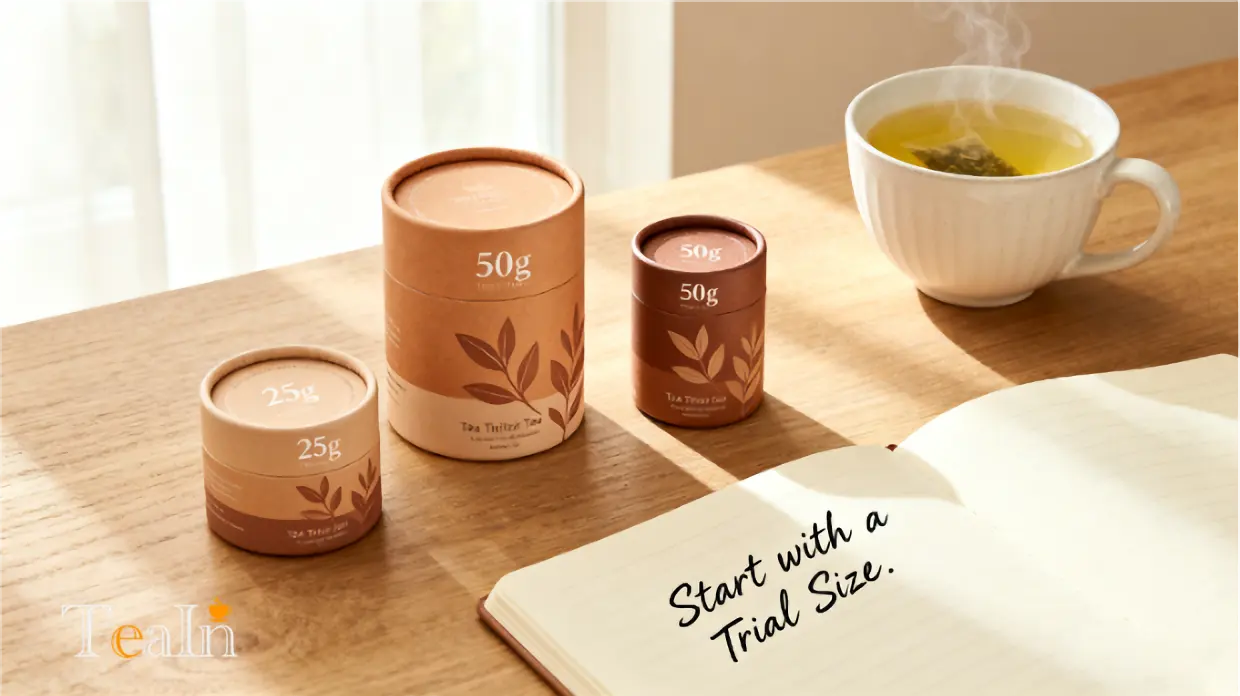
If you have stories from online tea shopping or questions about a store, share them in the comments—I’ll give advice based on my e-commerce experience. And I hope whiteteain becomes a nice surprise for you on your tea-finding journey.
